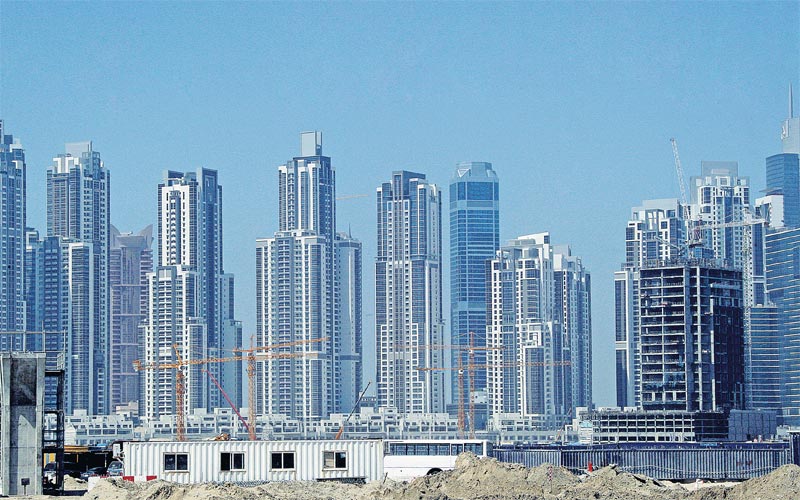 Business & Finance Club Magazine - Real Estate Sector - Dubai - Two real estate deals worth more than Dh800 million have just been struck in Dubai – a strong indicator that high net worth individuals (HNWIs) in the GCC have not only restarted exploring realty deals but are actually executing them.
The two deals are for properties in Jumeirah and the Business Bay area involving total investment of $225m (Dh826.42m).
A person close to the Jumeirah deal told Emirates Business requesting anonymity: "The GCC-based individual has finalised buying the commercial real estate property. The first of the two tranches of payment was made last week, and the transaction should be completed by the end of this month." According to information made available to this paper, the HNWI has bought a majority stake in an SPV (special purpose vehicle) floated by the previous buyer. The property is an operational hotel in Jumeirah and is valued at a little more than $100m (Dh 367m), the source added.
According to an estimate based on "various public sources" published earlier by Ernst & Young, around 31 deals across sectors were struck in the first quarter of 2009 in the Middle East and North Africa (Mena). This figure is expected to rise substantially in Q1 this year, said people in the industry.
"There was a decline in deals in 2008 and 2009 globally, but there would be an increase of 20 per cent in the number of deals in the Mena. There have been some deals on the development side that are more in real estate than in the hospitality sector," said Charbel Boutros, Manager, Mergers and Acquisitions, Roya International, one of the major consultancies in the region dealing in hospitality and real estate.
That GCC buyers are looking to lap up valuable commercial property is corroborated by Max Cooper, Executive Vice-President, Jones Lang LaSalle (JLL). "We have seen a strong increase in investor interest this year in quality real estate assets, including hotels. The interest has been predominantly from local and regional HNWIs, as well as from some institutional investors principally seeking to acquire property with strong and stable income streams," Cooper told this newspaper via e-mail.
"Investor interest in hotels in the Mena is being buoyed by a number of factors – a shift from development-led to an investment-led market; increase in [the number of] hotels for sale; competitive pricing; and rising visitor arrivals and revPAR," he added.
According to industry trackers, the HNWI appetite for realty deals is explained by their having a lot of liquidity at their disposal, whereas raising liquidity for mergers is becoming difficult for global institutional investors and quality institutional buyers. Many FIIs are exploring deals in the Middle East but raising liquidity for those could remain a problem. Rich individuals are far better placed in this respect.
"When you look at HNWIs, they are not in a distressed position. They are looking to enter a new cycle of investment and to play in the future growth," said Arnaud Andrieu, Vice-President, CB Richard Ellis, Middle East Investment & Advisory.
In the Business Bay deal, an HNWI has bought the property for around $125m. This deal is learnt to have been completed and both the buyer and seller are from the GCC. "This is quite a well-known hotel property in Business Bay and the transaction is complete now," said a person involved in the deal. This was an outright purchase where the new buyer will service certain financial obligations of the previous buyer in partial payment for the deal.
In a recent report, Arthur de Haast, Global CEO of Jones Lang LaSalle Hotels, said: "Across the world, the trading of single assets mostly valued up to $100m will initiate the recovery. Entrepreneurial transactions that can be financed regionally or locally will be the first to re-enter the market." In a separate survey, JLL said there are more potential buyers than sellers for suitable investment-grade assets in most Mena markets.
Boutros added: "Though the transaction value is reducing, the transaction number is increasing. While earlier you saw an average deal [size] of around $500m, an average deal size at present is around $100m. This shows that people are more cautious." Industry experts said that the HNWIs might not be directly affected by the euro zone crisis or trouble in any other part of the world, but they may very well take a cue from the global markets.
Speaking of long-term potential of the Mena market, Andrieu said: "Many investors have seen their portfolios grow, as they have been investing since as early as 2000. While they may not get the return-on-investment seen in 2007, the return is [still] substantial." |